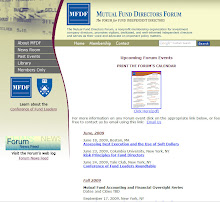Senator Carl Levin (D-MI) has reintroduced the Stop Tax Haven Abuse Act (S. 506). He previously introduced a similar bill under the same name in 2007. The 2009 version contains key changes relating both to the treatment of payments under derivatives and the taxation of foreign companies with US-based management. The bill is intended to curb the abuse of off-shore tax haven and tax shelters. But, U.S. based investment managers should be aware that the legislation as proposed would have a significant effect on the U.S. federal tax treatment of U.S. managed offshore private funds, including hedge and private equity funds.
The bill proposes, among other things, to:
Given its wide ranging effects, the bill bears close scrutiny by the industry. A companion bill (H.R. 1265) was introduced recently by Representative Lloyd Doggett (D-TX), and the Senate Finance Committee has also taken up some of the same issues addressed in both bills. Interest in both bills is very keen, and the Administration hopes tightening these tax provisions will raise significant tax revenues.
The full text of Senator Levin's bill is available at: http://frwebgate.access.gpo.gov/cgi-bin/getdoc.cgi?dbname=111_cong_bills&docid=f:s506is.txt.pdf
Morrison Foerster provides a summary and some analysis at: http://www.mofo.com/news/updates/files/15359.html#_ftn1

The bill proposes, among other things, to:
- Treat certain non-US corporations that are managed and controlled in the US as domestic corporations for federal income tax purposes;
- Subject certain payments on equity swaps to US withholding tax as dividends (treatment of payments on certain repos, securities lending transactions, and equity swaps as dividends for withholding tax purposes);
- Expand the instances in which information has to be reported and returns have to be filed with respect to certain accounts and investment vehicles; and
- Establish presumptions relating to transfers of property from offshore secrecy jurisdictions (OSJs).
- Expand the reporting requirements for passive foreign investment companies (“PFICs”) to include not only U.S. persons who are shareholders in a PFIC, but also U.S. persons who directly or indirectly form, transfer assets to, are a beneficiary of, have a beneficiary interest in, or receive assets from a PFIC;
- Require anti-money laundering programs for private funds and company formation agents;
- Establish new penalties and higher standards for exemptions;
- Expand the grantor trust rules.
Given its wide ranging effects, the bill bears close scrutiny by the industry. A companion bill (H.R. 1265) was introduced recently by Representative Lloyd Doggett (D-TX), and the Senate Finance Committee has also taken up some of the same issues addressed in both bills. Interest in both bills is very keen, and the Administration hopes tightening these tax provisions will raise significant tax revenues.
The full text of Senator Levin's bill is available at: http://frwebgate.access.gpo.gov/cgi-bin/getdoc.cgi?dbname=111_cong_bills&docid=f:s506is.txt.pdf
Morrison Foerster provides a summary and some analysis at: http://www.mofo.com/news/updates/files/15359.html#_ftn1






